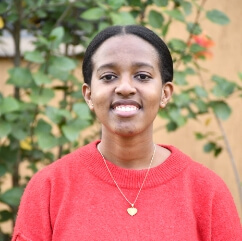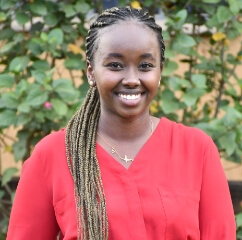The Strathmore Law Review is a law journal managed entirely by students at Strathmore Law School. Founded in 2016, the Review is an independent institution that produces a law journal peer-reviewed and published entirely by students at Strathmore Law School. It is one of the few consistent journals in Africa and publishes one volume annually.
About the Journal
Our Mission
The mission of the Strathmore Law Review is to provide a high-level platform for budding African scholars to publish their work. Our mission is to publish top-level African legal-academic work by anyone from undergraduate to master’s level.



Our Vision
The Strathmore Law Review aspires to provide a legal academic platform that will be a fundamental contributor for the advancement of legal scholarship in East Africa and Africa by extension. Our vision is to foster an attitude of consistency and excellence through legal writing and publishing. High level legal writing will contribute to a better understanding of the law related issues that bedevil the continent and to ebb away misconceptions of Africa as the ‘dark’ continent. The Strathmore Law Review exemplifies the adage that we are African, and Africa is our business.
Inception of the SLR
For the last six years, the Strathmore Law Review has earned a reputation as one of the Africa’s leading law journals by consistently publishing groundbreaking and challenging contributions to the arena of legal scholarship in Africa. From its inception in 2016, the Strathmore Law Review publishes one volume annually.
The first editorial board consisted of five student editors. Anyone else who joined the team since then would undergo a competitive application process that involved only writing. The Board has grown steadily over the years and expanding to a point where new positions have been created to facilitate the smooth running of the journal such as a Digital Publishing editor. The expansion of the board as well as the increase in papers submitted to the Strathmore Law Review means that from having one panel discussion consisting of all the editors regarding the publishability of a paper, the journal now has as many as 3 separate panels that do the same.
In 2020, the Strathmore Law Review commenced the inaugural Yash & Jill Cotrell Ghai writing prize to award the best article in the volume with 1000 USD cash prize. This is the second year of the prize and the Strathmore Law Review looks forward to even greater ground breaking articles.
When it came to instituting a philosophy, key questions confronted the board in the creation of a successful African law journal. Some of these ranged from ‘what role will the SLR play in society?’ ‘What sort of writings will the SLR seek to publish?’ and ‘Should the SLR use the peer review or non-peer review system?’ as well as ‘what systems should the SLR use to recruit?’ ‘How does the SLR build the capacity of team members?’ ‘How will the SLR communicate with authors?’ and ‘How will the SLR make prospective authors confident enough to submit their work?’
With the Strathmore Law Review entering its sixth year of publishing, it continues to uphold the vision of its founders in not only creating a high-level platform for young budding African scholars to publish their work but to foster an attitude of consistency and excellence through legal writing and publishing. A vision that is uncompromisingly carried on by each new board that inherits it.
Partners




Editorial Board

Sharlene Kapere

Sanjana Ragu

Marie-Victoire Iradukunda

Larry Moyo Chula

Amelia Midwa

Tabitha Munyaka
Senior Editors

Natalie Otieno

Bradley Wafula

Nyakerario Omanga

Shamiah Muchesia
Associate Editors

Mark Lenny Gitau

Wangari Kamau

Zayn Aslam

Abigail Burgei

Eileen Mogeni

Peter Muindi

Teya Barongo

David Mwenda

Winnie Amakatwa
Editorial Assistants

Michelle Adika

Nicole Nereah

Gia Sajan

Sumeya Abdulkadir

Wayne Simwa

Preet Singh

Christine Nganga

Precious Njenga

Stephanie Sogomo
1. What does the SLR do?
The singular mission of the SLR is to provide a high-level platform for budding scholars to publish their work. The SLR receives, selects, edits, and publishes articles in an annual peer-reviewed volume.
2. What is the membership structure of the SLR?
The Law Review is run by an Editorial Board comprising the Editor-in-Chief, Managing Editor, Publishing Editor, Editors in charge of Peer Review, Senior Editors, and Associate Editors. These positions are usually taken up by second, third and fourth-year law students. The membership also includes first-year Editorial Assistants.
3. Is the SLR a club?
No. The SLR is an institution and not a club.
4. How does an institution differ from a club?
While a club would be primarily focused on member experience and benefits, as an elite institution, the authors are at the centre of the work of the SLR.
5. What are the advantages of being a member of the SLR?
As a member of the Law Review, you will have the opportunity to hone your skills in editing scholarly work, writing, and critical thinking, among others. The Law Review is also a place to meet and work with outstanding peers and upperclassmen. However, what you will derive from your time as a member of the Law Review will be your responsibility and not the Board’s.
6. How can I join the SLR?
Interested law students are invited to join the SLR during their first year as Editorial Assistants, or during their second year as Associate Editors.
7. How long is the application process and what does it involve?
The complete application process for editorial assistants takes around 2 weeks. The actual application window will usually open for 7 days while the rest of the time goes towards reviewing applications and communicating selection decisions.
8. Why is the application window so short?
The length of the application window (7 days) forms part of the test and is sufficient to submit a complete application.
9. What do you look for in applications to join the Law Review?
Students who demonstrate a keen interest in legal scholarship, are bright, hardworking, and self-motivated.
10. What does being an Editorial Assistant involve?
Editorial Assistants are expected to complete the editing training course held at the beginning of the academic year, complete weekly editorial tasks as assigned, attend all capacity-building sessions, and participate in mentorship activities. Although Editorial Assistants are not part of the Board, they are trained on matters legal research and writing and are to assist the Board in carrying out its duties. Upon SUCCESSFUL completion of the editorial process, Editorial Assistants receive certificates officially recognised and endorsed by Strathmore University.
11. When will I be able to join the SLR as a full-time board member?
After successful completion of their duties, former editorial assistants may apply to join the board. If successful, they become an Associate Editor. Associate Editors are board members with full voting capacity. Their role involves participating in a team editing process of submissions, conducting some editorial training classes for the first years, and participating in all capacity-building sessions and mentorship activities. In addition to these editorial responsibilities, all Associate Editors are expected and required to author a paper for possible publication in the SLR.
12. Can I apply to be an Associate Editor if I was not an Editorial Assistant in my first year of law school?
The application to join the SLR Editorial Board as an Associate Editor is open to all second-year law students. However, the learning curve will be steep and editorial assistants are better equipped with the skills needed to succeed in the Associate Editor application.
13. If my application for the position of Associate Editor is successful, will I need to reapply next year to remain a member of the SLR?
No. Current second-year Associate Editors proceed to become Senior Editors in their third year. An application is not required.
14. Are members trained in writing and editing?
The core business of the SLR is editing and publishing, and members are trained on the skills required for this. Improving your writing abilities is essential for your competence as an editor, however, you must take personal initiative in this direction.
15. How will I improve my skills in writing and editing as a member of the SLR?
The Law Review organises regular capacity-building sessions where members are taken through various editing skills. Outside of these sessions, members are encouraged to take initiative in developing both their writing and editing skills.
16. What is the time commitment for being a member of the SLR?
Outside of the 40+ hours per week that you put towards your LL. B degree, you can expect to commit approximately 7 to 8 hours per week towards your Law Review responsibilities and personal skills development. These hours may vary depending on the workload. For example, the workload is heaviest for the majority of the first semester of the academic year as this is when a lot of editing happens for the new volume.
17. How do members balance their academics and their SLR responsibilities?
While the Law Review workload and time commitment is significant, members are able to balance these demands with their academics through effective time management and teamwork. The Law Review makes every effort to ensure that the workload is spread out as far as possible without compromising on quality and publication schedules. The workload also typically decreases during the exams season. Members are also encouraged to communicate any difficulties they are experiencing which are interfering with their capacity to deliver on their Law Review responsibilities.
18. Can SLR members write and submit papers for publication?
Yes. Members are encouraged to write and submit papers for publication. All submissions to the SLR are reviewed under a double-blind system and in different panels. The Board takes every precaution to avoid any conflict of interest, for instance, a member can never be in a panel that is editing their paper.
19. Will I be able to take up other extracurricular activities while a member of the SLR?
Law Review members are able to take up additional extracurricular activities. However, as an editor your participation will be expected and required when Law Review meetings are scheduled, and deadlines are set regardless of your involvement in other activities.
20. Are there other ways to get involved with the SLR without being a member?
Yes—by writing. The SLR encourages law students from any class to write and submit papers for publication. Additionally, the SLR community extends to our readers, expert reviewers, faculty advisors, sponsors, and mentors.








